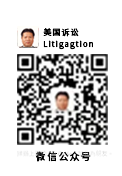China Adopts Anti-Monopoly Law
Foreign acquisitions of Chinese companies will be subject to stringent new checks intended to protect China's economic security under a new competition law passed on Thursday.
After 13 years on the drawing board, the Anti-Monopoly Law passed by the Standing Committee of the National People's Congress (NPC), China's top legislature, winning 150 out of the 153 votes, will come into effect on August 1, 2008.
"As well as anti-monopoly checks stipulated by this law, foreign mergers with acquisitions of domestic companies or foreign capital investing in domestic companies' operations in other forms should go through national security checks according to relevant laws and regulations if the cases are related to the issue," it reads.
Foreign investors should apply for approval from the Ministry of Commerce (MOC) if their purchases of domestic companies affect national economic security, take place in key sectors or cause a transfer of the operating rights of famous domestic brands, according to a regulation issued by the MOC along with five other government organs last year.
Before that, only mergers and acquisitions worth more than US$100 million needed MOC checks and approvals.
In December last year, the State Council, China's cabinet, released a list of strategic sectors in which the state would retain control.
The list included military-related manufacturing, power production and grids, petroleum, gas and petrochemicals, telecom manufacturing, coal, civil aviation and shipping.
The law, with eight chapters and 57 provisions, also bans monopolistic arrangements, such as cartels and other forms of collusion, and provides for the investigation and prosecution of monopolistic practices, while protecting monopolistic arrangements that promote innovation and technological advancement.
It prohibits monopolies from using their dominant status in the market to curb competition, fix prices, enforce package sales, and refuse or enforce trade.
All companies seeking mergers or acquisitions would have to notify the anti-monopoly law enforcement departments if the actions meet the standard set by the State Council.
The law states that "an anti-monopoly commission will be set up under the State Council to deal with anti-monopoly issues." The commission will appoint departments to undertake enforcement.
The law stipulates "officials of the law enforcement departments will be prosecuted if they leak confidential trade information acquired during investigation", to protect the interest of companies.
The law also stipulates that "government departments should not take advantage of their power to curb competition", and prohibits governments from appointing producers or suppliers for unit or individual procurement.
The law bans trade associations from organizing companies in their own industries to take monopolistic actions prohibited by this law.
"Those who violate the provision will be fined up to 500,000 yuan (about US$66,700), and the associations with serious offences will be deprived of their registrations," the law stipulates.
China joins more than 80 countries in adopting an anti-monopoly law. Drafting of the law began in 1994. (S.L)
 专业处理美国诉讼与投资法律事务,侧重追讨各种欠款。
专业处理美国诉讼与投资法律事务,侧重追讨各种欠款。


